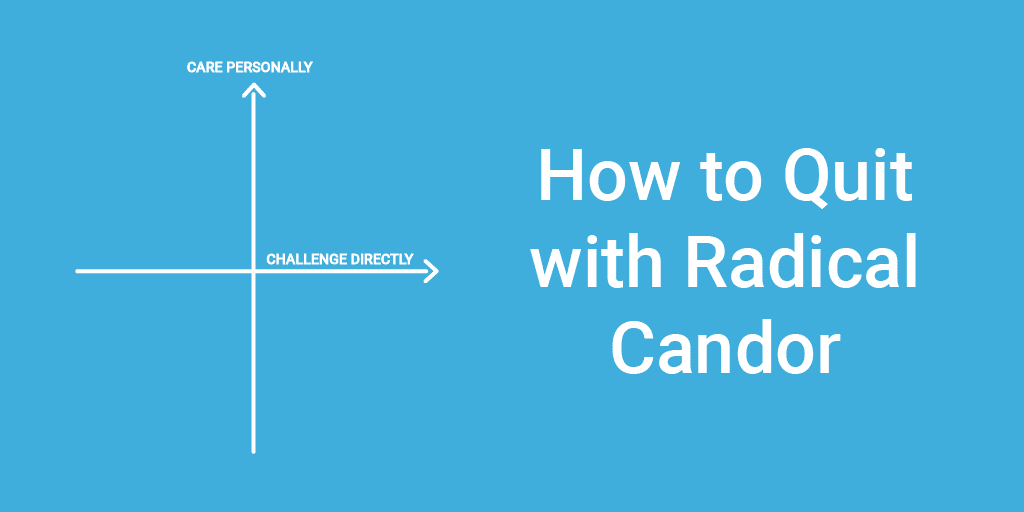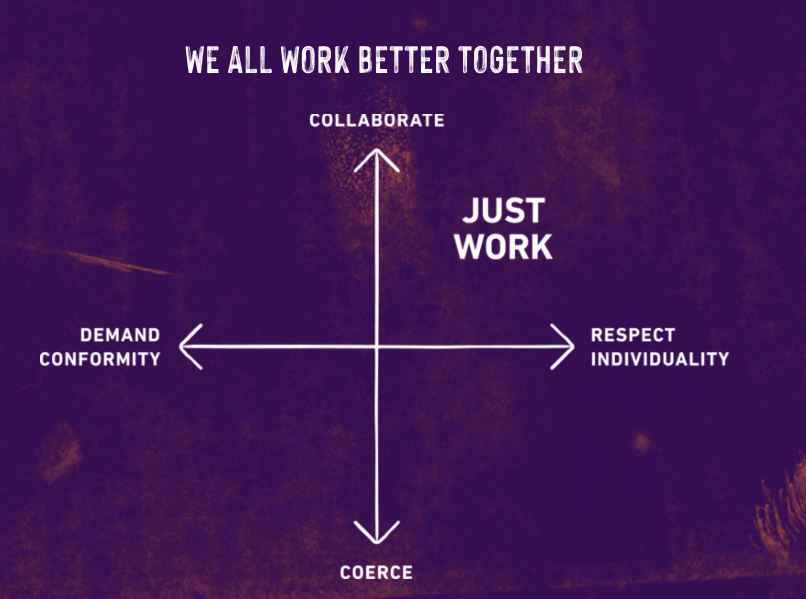What Do Kick-Ass Bosses Do to Stop Quiet Quitting? They Actually Care About Their Employees
Do you want to know how to stop quiet quitting? The answer is simple, but it's not easy. Learn to practice Radical Candor.
7 min read
Katie Bartlett Jun 27, 2023 12:48:38 PM

Low employee engagement — largely due to poor management training — costs the global economy $8.8 trillion. That’s 9% of global GDP, according to Gallup’s 2023 State of the Global Workplace report.
The report quoted World Bank’s Chief Economist Indermit Gill on the potentially catastrophic implications of disengaged employees — 59% of whom are described as quiet quitting while 18% are described as loud quitting — on the future of humanity.
“A lost decade could be in the making for the global economy,” Gill said. “The ongoing decline in potential growth has serious implications for the world’s ability to tackle the expanding array of challenges unique to our times — stubborn poverty, diverging incomes and climate change.”
So, what’s the solution to re-engage those meh employees? Better management training.
Need help with management training? Let's talk!
“Poor management leads to lost customers and lost profits, but it also leads to miserable lives,” Gallup CEO Jon Clifton noted at the beginning of the report.
“Gallup’s research into wellbeing at work finds that having a job you hate is worse than being unemployed — and those negative emotions end up at home, impacting relationships with family. If you’re not thriving at work, you’re unlikely to be thriving at life.”
What exactly does it mean to be a better manager?
Telling people what to do doesn’t work. Instead, start engaging each person who reports directly to you as a human being."
“Management training needs to cover more than time management, delegation and those other topics that are talked a lot about,” said Farrah Mitra, a Candor Coach, strategy consultant, executive coach and facilitator. “It’s equally important that managers know how to inspire their employees.”

People don’t leave bad jobs, they leave bad managers.
Gallup asked people what they would change about their workplace to make it better. The most common answer? The boss.
Gallup found that the majority (59%) of employees across the globe are “quiet quitting,” or failing to actively engage with their work, putting absolutely no more than the bare minimum of energy and enthusiasm required to complete a task.
Gallup described quiet quitters as “the low-hanging fruit” for productivity gains. With the right support, they are ready to be motivated and inspired. And this support must come directly from those managing them.
While this might seem like a tall order for managers who haven't been taught how to manage, the first step is laying down your power.
Telling people what to do doesn't work. Instead, start engaging each person who reports directly to you as a human being.
“No matter how much innovation there is in AI, we cannot escape human connection, even in the workplace,” said Bina Martin, Candor Coach, author and facilitator, and design lead at Second City Works.
“This doesn't mean we all have to be best friends, but a manager who is not providing feedback, interacting proactively with their direct reports or valuing their time is going to lose those employees.”
@genyexec This section in the beginning of the book Radical Candor by Kim Scott really got me thinking as leader. ...and yes, I don’t know how to draw straight lines! #leadership #leadershipdevelopment #careeradvice #leadershiplessons #booktok #radicalcandor #careertips #careertok #greenscreen ♬ original sound - GENYEXEC
A key component of the Radical Candor feedback framework, Radical Candor Author and Co-founder Kim Scott describes caring personally as “giving a damn, sharing more than just your work self, and encouraging everyone who reports to you to do the same.”
This doesn’t mean you have to share every detail of your personal life with your coworkers. You don’t need to eat lunch together or go out for drinks after work. Caring personally is about knowing the needs of your employees and how to best motivate them.
To Care Personally, Mitra recommends asking employees one “golden” question: What’s on your mind?
“When you ask someone ‘How are you?’, they can just say ‘fine.’ ‘What’s on your mind’ gives people the space to tell you what’s really going on. When you know what the problems or challenges are, you can offer them the support they need,” Mitra explained.
When managers discover quiet quitters in their workplace, demonstrating that they actually care is the first step toward re-engaging these employees.
Martin recommends preparing a go-to question: How can I better support you? What do you need to be able to execute tasks on a deadline that we can both be comfortable with?
Learn how to ask a go-to question >>
“Asking a question and listening to the answer goes a long way toward ensuring that the employee feels heard and valued,” Martin says.

Challenging directly — giving your employees kind and clear feedback when it is due, is also an essential part of caring about them.
Oftentimes, managers avoid challenging out of “fear of being a jerk,” Scott cautioned in Radical Candor. This pushes people toward Ruinous Empathy — avoiding feedback out of fear of making the other person uncomfortable — or Manipulative Insincerity, avoiding feedback out of fear of making yourself uncomfortable.
Ruinous Empathy and Manipulative Insincerity are “silent but deadly” for quiet quitters, Martin warned. The message of job dissatisfaction is not being communicated until it’s too late.
Challenging directly — and encouraging your employees to challenge you — is essential in building communication and trust. It shows both people that the other cares enough to point out where things aren’t going well and commit to fixing the mistakes.
Learn how to have Career Conversations >>
When giving performance reviews, Mitra has found success with delivering feedback in the context of the employee’s career goals, sharing both what they’re doing well to reach their goals as well as the areas that could use improvement.
This makes it clear why the feedback is important and keeps the employee motivated towards reaching their longer-term goals.

Many have theorized that quiet quitting is the result of a generational divide: Gen Z and Millenials want a clear delineation between work and personal time, and this clashes with earlier generations who seemed to be always working or who derive their identity from their work.
And when young employees voice their desires for a work-life boundary, they’re sometimes labeled as lazy or entitled. As a result, quiet quitting is their only choice, according to Martin.
“No one is giving feedback and having a reasonable discourse about it because they think the other side isn’t listening or have already decided that their way is the right way,” she said.
Ruinous Empathy and Manipulative Insincerity are silent but deadly for quiet quitters. The message of job dissatisfaction is not being communicated until it’s too late."
Communication is the solution, according to Martin. Some leaders view one-on-one meetings with their direct reports as a waste of time, thinking that they’ll catch problems in performance reviews.
Or, they wait until problems arise to address them. But this leaves underlying issues festering, which ultimately results in unhappy employees. And when those workers decide to quiet quit, the productivity lost is ultimately far greater than any time saved by skipping one-on-one meetings.
Get the 411 on 1:1 meetings >>
One-on-one meetings should be happening on the regular to keep a constant line of communication open between managers and their direct reports.
The agenda should be driven by the employee, not the manager. Both parties should leave knowing what needs to get done and who is responsible — ending the check-ins with clear takeaways ensures that this happens.
One-on-one meetings play an important role in building trust and connection between employees and their managers. However, good managers know not to wait for a scheduled meeting to tell their direct reports something they need to know ASAP.
The atomic building block of Radical Candor is the two-minute impromptu development conversation.
“Impromptu feedback is something you can squeeze in between meetings in three minutes or less,” Scott said. Truly. The best feedback I’ve gotten in my life generally happened in super-quick conversations between meetings or standing waiting for a light to change. Giving impromptu feedback is more like using a toothpick than getting a root canal.”
Gallup found that employees are almost seven times more likely to be engaged than actively disengaged when their managers know what projects they’re working on.
“Scheduling weekly check-ins and running them efficiently can go a long way toward being proactive and demonstrating that you are available to your staff,” Martin said.

Gallup’s 2023 Report reveals that the state of the world’s economy and employee engagement are directly linked. This puts the onus on leaders to manage in a way that shows they are listening and are committed to creating a just workplace.
By learning and practicing the principles of Radical Candor, leaders can not only retain their employees, they can re-engage them, too.
Read Radical Candor case studies >>
“After the Radical Candor training, I had an employee come to me and say, ‘I can see a total change in my manager. I went from barely speaking to him to meeting with him on a regular basis,” said Heitman Senior Vice President, Global Head of Organizational Development & DEI Officer Christine Nicholl.
“The relationship has completely improved. I went from being uncertain about my future at Heitman to now being confident that I can fulfill my career goals.’”
Zenhub, a productivity management and collaboration platform, noted that fostering a culture of radically candid impromptu feedback on their team allowed them to move faster and go deeper.
“We get to the root of issues faster, but we also are able to mentor much more effectively,” said Co-founder Matt Butler and former Head of Marketing Paige Paquette.
“The most effective practices are the ones that you can make habits. Radical Candor is one of those practices. Nothing is required besides a little effort and consideration, so consider making the effort.”
The returns are worth it.
Get Radical Candor e-learning >>
----------------------------------------------------------------------------------------------------------------------------------------------------------------
Need help practicing Radical Candor? Then you need The Feedback Loop (think Groundhog Day meets The Office), a 5-episode workplace comedy series starring David Alan Grier that brings to life Radical Candor’s simple framework for navigating candid conversations.
You’ll get an hour of hilarious content about a team whose feedback fails are costing them business; improv-inspired exercises to teach everyone the skills they need to work better together, and after-episode action plans you can put into practice immediately to up your helpful feedback EQ.
We’re offering Radical Candor readers 10% off the self-paced e-course. Follow this link and enter the promo code FEEDBACK at checkout.

Do you want to know how to stop quiet quitting? The answer is simple, but it's not easy. Learn to practice Radical Candor.

As we’ve mentioned in a couple of podcast episodes (Ep 13: Help! My Boss is a Micromanager and Ep 8: How to Give Feedback to Your Boss), sometimes no...

By Kim Scott & Trier Bryant We―all of us―consistently exclude, underestimate, and underutilize huge numbers of people in the workforce even as...